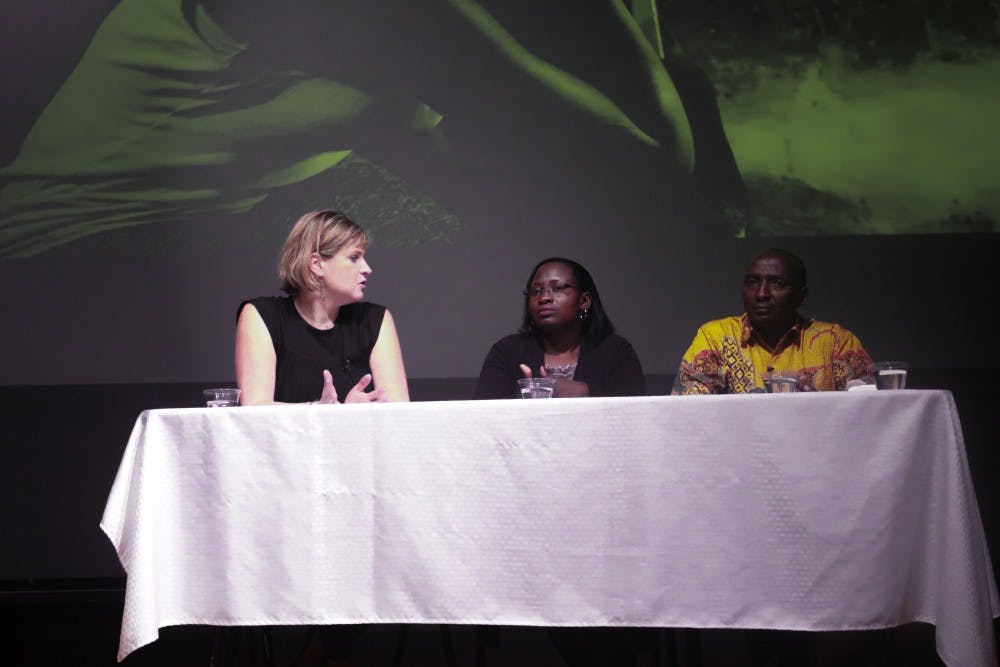Representatives from Family Health Options Kenya traveled to speak out against the Trump administration's Mexico City Policy — also called the "Global Gag Rule" — on Wednesday night.
Human rights activist Lisa Shannon met Amos Simpano, director of clinical services at Family Health Options Kenya, and Clinic Director Melvine Ouyo during a trip to Kenya in March. Simpano and Ouyo arrived in the United States last week to speak across the country about the impact of the Global Gag Rule on their organization.
Students came to the Sonja Haynes Stone Center for Black Culture and History to learn more about the Mexico City Policy and healthcare in Kenya. Sophomore Mallory Link said she attended the event because she was interested to hear about how policy in the United States is affecting populations abroad.
Shannon said the Global Gag Rule cuts funding for any overseas healthcare provider that presents abortion as an option for patients. As a result of this order, Family Health Options Kenya lost 50 percent of its funding.
Family Health Options Kenya provides low-cost healthcare services through 16 clinics across Kenya. The organization has an outreach program for remote populations that may not be able to travel to their clinics. Simpano said Family Health Options Kenya is different from many other healthcare organizations in the country because women can come to the clinic freely and without fear — they know they won't be turned away, ignored or shamed.
Because Family Health Options Kenya’s funding has been cut as a result of their refusal to sign the Gag Rule, they have been forced to start charging for their services. Patients now typically pay the equivalent of one U.S. dollar, which is enough to make their services out-of-reach for the most at-risk populations.
The organization has also been forced to suspend their mobile outreach program, which leaves many vulnerable populations in more remote regions of Kenya without any access to family planning options.
One clinic has already closed in Mombasa, and Simpano said if they do not receive more funding soon, Family Health Options Kenya will likely have to close half their clinics in 2018. The clinics that are most needed, such as the one Ouyo directs in Kibera, a slum of Nairobi, will be the first to close because women in these areas cannot afford to pay for their services.
The panel agreed that the ruling will have a detrimental impact on the health of vulnerable populations in Kenya. Because of lack of funding, clinics will not be able to provide much needed low-cost contraceptives, which will result in an estimated 2 million abortions in the next few years that could have been prevented.




